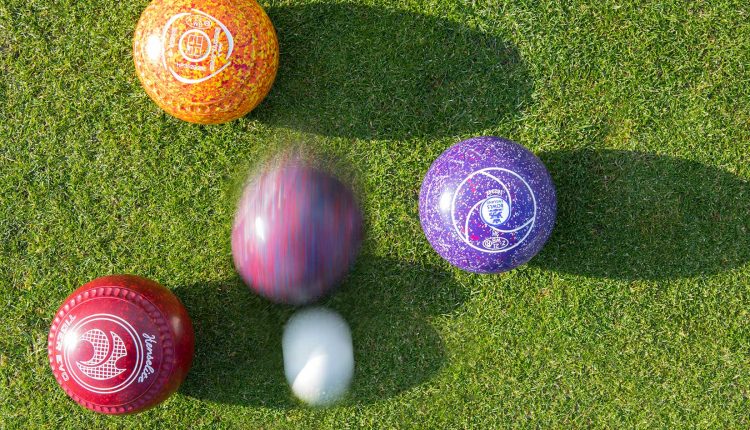Dead as a Dodo
OCT 2013 edition
THIS MONTH we are looking at ‘dead ends’ and what should be done when an end is made ‘dead’ or ‘killed’ or ‘burnt,’ depending on which part of the world you come from.
Firstly, what is a dead end? An end is made dead when the jack is declared dead. There are a number of ways in which an end can be made void, which I will focus on in my next column. However, in most cases, it is when the ‘jack’ has been made dead that the end is declared as nullified.
So how many different ways can the jack be made dead? As there are slight differences in the World Bowls Laws of the Sport of Bowls and the World Indoor Bowls Council Laws of the Sport of Indoor Bowls rules, I will quote both versions of the law.
World Bowls Limited Laws of the Sport of Bowls.
LAW 30 DEAD JACK
30.1 If the jack is moved by a bowl in play, it is a dead jack if it:
30.1.1 passes above the face of the bank;
30.1.2 passes completely outside a side boundary of the rink of play.
30.1.3 comes to rest in any hollow in the face of the bank; or
30.1.4 comes to rest at a distance of less than 20 metres, as measured in a straight
line, from the centre of the mat line to the nearest point of the jack.
30.2 A jack is not a dead jack if it comes to rest:
30.2.1 on top of a toucher at rest in the ditch; or
30.2.2 on top of any bowls that are at rest within the boundaries of the rink.
30.3 The skips, or opponents in singles, should decide whether a jack is dead or not as soon as they realise that a decision is necessary. (If the players do not realise that a decision is necessary as soon as the jack comes to rest, the decision can still be made even if a number of bowls have been played after the jack came to rest). If they cannot reach an agreement, they should ask the umpire to make a decision.
30.4 If the jack is dead, the end is a dead end and law 31 will apply. However, for domestic play, Member National Authorities can decide not to have the end declared dead. Instead, they can decide to have the jack re-spotted in line with law 15.5.
World Indoor Bowls Council Laws of the Sport of Indoor Bowls.
LAW 35 DEAD JACK
Should the jack be driven by a bowl in play so that:
(i). it passes beyond the face of the bank;
(ii). it passes wholly beyond the boundary of the rink i.e. over the bank or boundary;
(iii). it comes to rest in any opening or inequality of any kind in the bank, or
(iv). it rebounds to a distance of less than 20 metres in a direct line from the centre of the mat line, the jack shall be declared dead.
Now that we know how an end is made dead, let us look at what we should do when the end is declared as dead. Again, I have quoted both versions of the laws.
World Bowls Limited Laws of the Sport of Bowls (WB).
LAW 31 DEAD END
31.1 A dead end is not counted as a completed end, even if all the bowls required to be played have been played.
31.2 A dead end should be replayed in the same direction unless the skips, or opponents in singles, agree to play it in the opposite direction. (If the jack and bowls need to be transferred to the opposite end of the rink before the end is replayed, they should be carried up the rink to avoid distracting players on neighbouring rinks).
31.3 If the skips, or opponents in singles, or the umpire declare an end dead, the first to play in that end should also play first when the end is replayed.
World Indoor Bowls Council Laws of the Sport of Indoor Bowls (WIBC)
LAW 35A DEAD END
(i). When the jack is dead, the end shall be regarded as a dead end and shall not be accounted as a played end, even though all the bowls in that end may have been played.
(ii). All dead ends shall be played anew in the same direction unless both skips, or opponents in singles, agree to play in the opposite direction.
(iii). When an end is dead, the jack shall always be delivered by the player who first delivered the jack for the end which became dead.
There are two points to stress regarding the above that are often misunderstood by players. The first is in which direction you replay the dead end. I often hear skips saying:
“I made it dead, so I will decide which way we play.”
When an end is made dead, it makes no difference who killed the end. The end is played
in the same direction unless:
“Both skips, or opponents in singles, agree to play in the opposite direction.”
Another bone of contention seems to be who delivers the jack when the end is replayed when it is the first end of a game or an extra end because on these ends the winner of the toss has the option of either taking the mat and jack or giving the mat and jack to their opponent. In both circumstances, the jack is re-delivered by the same player, so if you win the toss and decide to give the mat and jack to your opponent, you cannot change your mind if the end is made dead and replayed anew.

